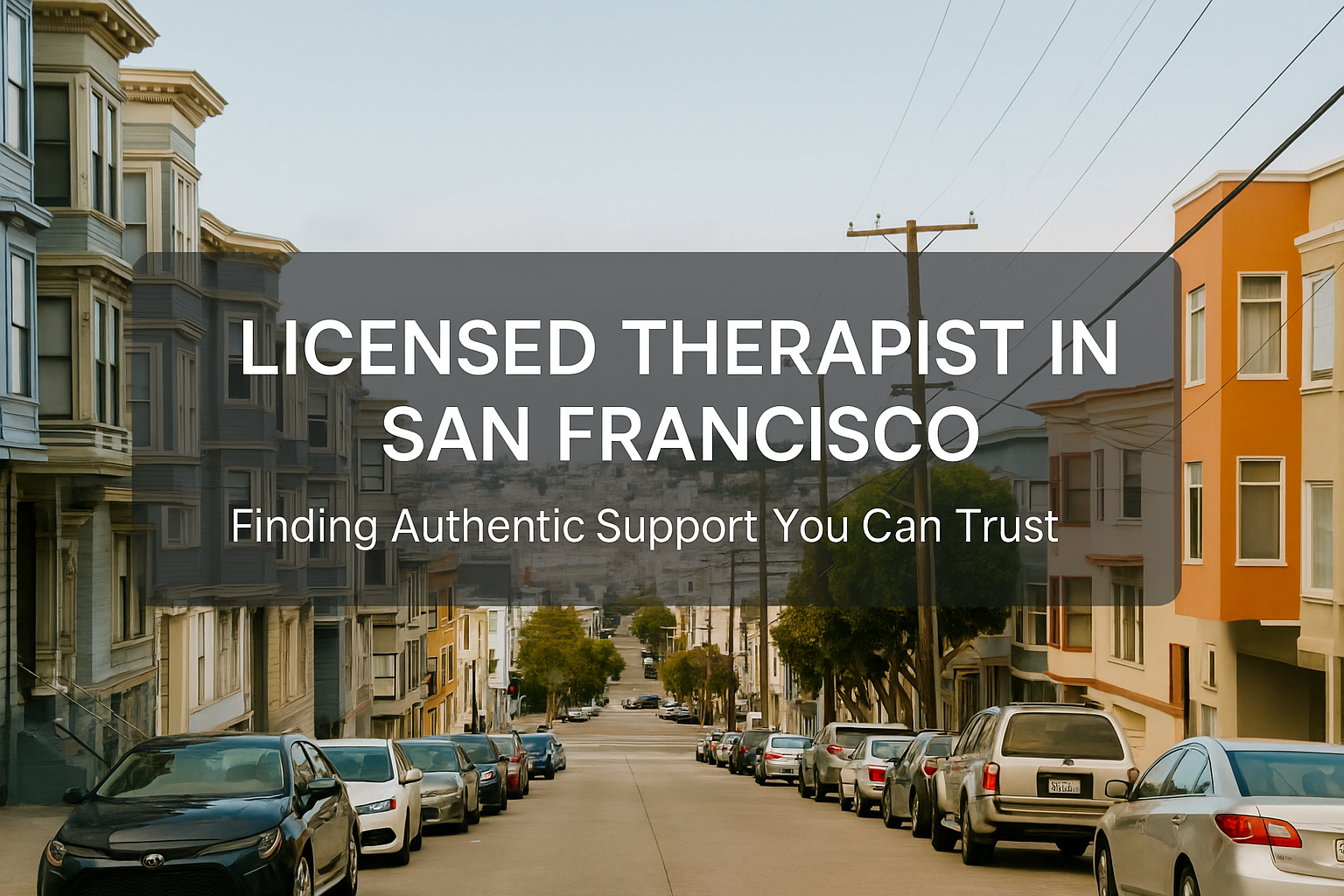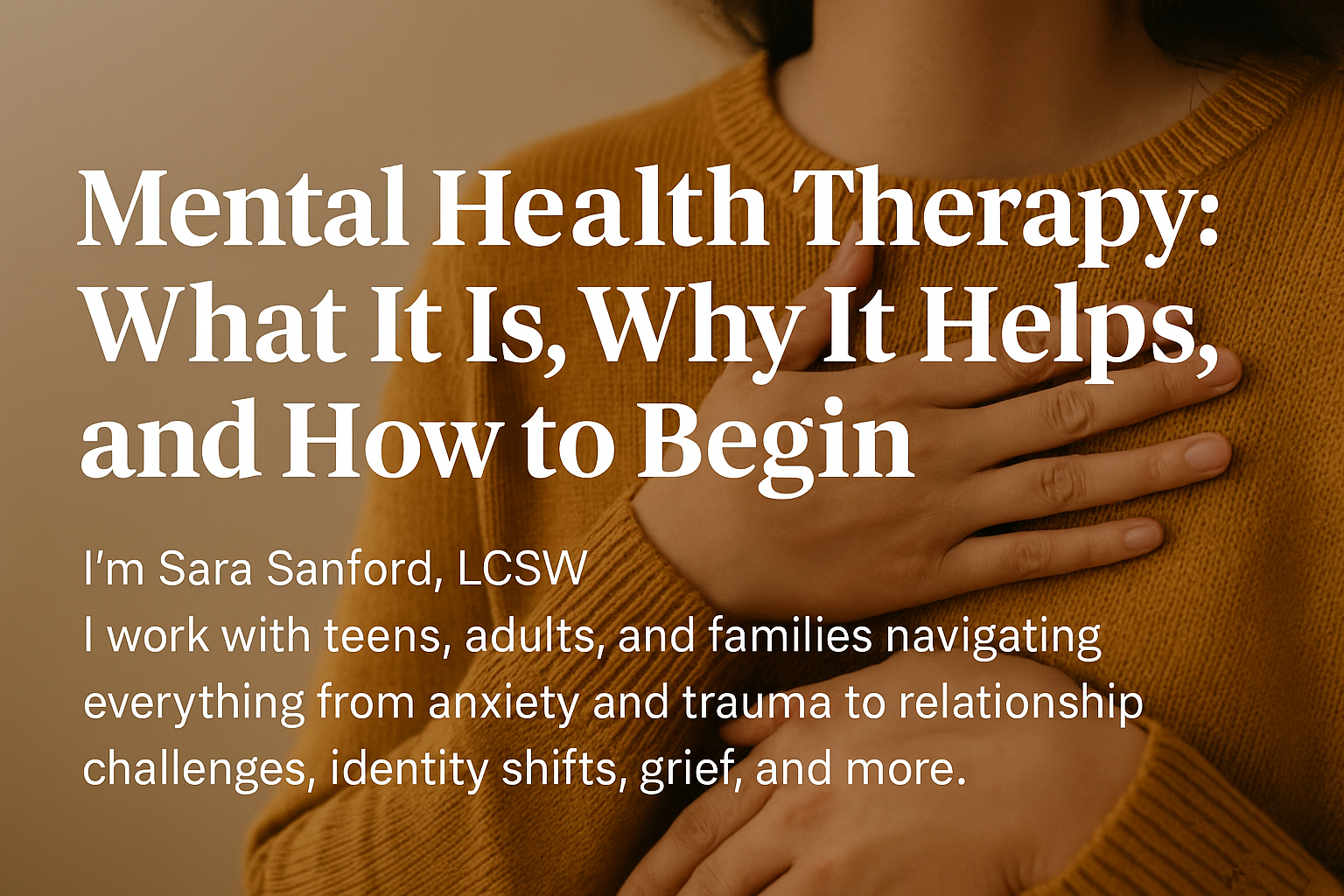Hi, I’m Sara. If you’re here, it might be because something inside you feels off—maybe something old, something heavy, something that won’t let go. Whether it’s trauma from a single event or a lifetime of overwhelming experiences, you’re not alone. Healing from trauma and PTSD is possible, and therapy can be a powerful, gentle path toward that healing.
I want to walk you through what trauma therapy can look like, what PTSD really is (and what it isn’t), and how we can work together to make space for relief, clarity, and connection again. So grab a tea, cozy up, and let’s talk.
What is PTSD?
PTSD (Post-Traumatic Stress Disorder) is more than a response to trauma—it’s how the nervous system adapts when it doesn’t feel safe after a terrifying or overwhelming experience. And it’s not just reserved for combat veterans or survivors of extreme events. Trauma can come from so many places: childhood neglect, emotional abuse, sexual assault, medical trauma, or even the cumulative impact of high-stress life events.
PTSD symptoms can include:
- Flashbacks or intrusive memories
- Nightmares
- Emotional numbness
- Hypervigilance (feeling on edge all the time)
- Avoidance of reminders of the trauma
- Difficulty trusting or connecting with others
- Feelings of shame, guilt, or worthlessness
Sound familiar? These responses are not signs of weakness—they are signs that your nervous system is working overtime to protect you. And therapy is about helping your system learn that it doesn’t have to be in survival mode anymore.
What is Trauma Therapy?
Trauma therapy is not about reliving the past or forcing yourself to “get over it.” It’s about creating a safe, structured environment to gently process what happened, reconnect with your body and emotions, and reclaim the parts of you that got buried along the way.
Some of the methods we might explore together include:
Trauma-Informed Therapy: Grounded in compassion and safety, trauma-informed therapy helps you move at your own pace. It’s not one-size-fits-all. We adapt the work based on how your nervous system responds and what you need.
Attachment Therapy: This explores how early relationships shaped your sense of safety, boundaries, and connection. If you struggle with intimacy or emotional safety in relationships, this approach can help repair those early wounds.
Mindfulness Therapy: Mindfulness gives us tools to regulate your nervous system in real-time. You learn how to be present in your body again—even if that body has felt like a battlefield.
CBT and ACT: Cognitive tools that help you reframe trauma-based thinking patterns and build resilience without minimizing your very real pain.
Holistic Healing: Sometimes trauma is stored in the body. We may use breathwork, grounding techniques, or even creative expression to support your healing beyond words.
What It Looks Like to Heal from Trauma
Healing isn’t linear. You might have days when you feel like you’re back at square one. That’s normal. And those moments don’t mean you’re failing—they mean you’re healing in real time.
Therapy gives you space to:
- Understand your trauma narrative (what happened, how it impacted you, what story you’ve carried)
- Reconnect with safety in your body
- Unlearn patterns of self-blame, shame, or freeze responses
- Set boundaries that protect your energy
- Build relationships rooted in trust and mutual respect
Each session is a doorway to more clarity, more regulation, more hope.
When PTSD Looks Different
Not everyone with trauma gets diagnosed with PTSD. In fact, many folks walk around with what’s called complex trauma (C-PTSD) and don’t realize it. This form of trauma is often the result of long-term relational abuse, neglect, or chronic stress in childhood.
Common signs of C-PTSD include:
- Trouble with trust and intimacy
- Chronic feelings of emptiness
- Emotion dysregulation
- People-pleasing or conflict avoidance
- Feeling “too much” or “not enough”
If that resonates, I want you to know you’re not broken. You adapted to survive. And now, you can learn how to thrive.
You can read more on our approach to Complex Trauma & PTSD here.
Therapy Options That Support Trauma Healing
At Sara Sanford Therapy, we offer a variety of options that support healing from trauma:
- Individual Therapy: One-on-one sessions where we move at your pace, explore your story, and create new ways of relating to yourself and the world.
- Group Therapy: A gentle, powerful space to connect with others who understand what you’re going through. Shared healing is transformative.
- Online Therapy: Therapy from the comfort of your own space. Especially great if leaving home feels hard some days.
- Therapy Intensives: Sometimes we need more than a weekly session. Intensives are deep, focused work designed to accelerate healing with compassion.
- Care Coordination: Healing can require a team. We collaborate with other providers so your care feels cohesive.
- Veteran Support & Substance Abuse: If trauma intersects with military experience or addiction, you are absolutely welcome here.
Why People Choose to Work With Me
I know the territory of trauma intimately as a therapist. I’ve spent years walking alongside people who thought they’d never feel safe again. And I want you to know: healing is not only possible—it’s deeply worth it.
People tell me they appreciate how grounded, honest, and nonjudgmental I am. I’m not here to pathologize you. I’m here to get curious, hold your story with care, and help you move toward the life you deserve.
Getting Started
The first step is always the hardest. I get it. But it can also be the bravest.
You can start by visiting my Contact Page or checking out FAQs and Pricing Info. If you’re curious to learn more about how I work, you can read about My Therapy Approach or About Me.
If you’re not quite ready to reach out, that’s okay too. Keep reading the blog, keep breathing, keep taking care of yourself in small ways. Healing doesn’t need to be rushed.
You Deserve Safety and Support
PTSD and trauma don’t define you. They’re part of your story, but not the whole story. Therapy can help you reconnect with your strength, reclaim your voice, and rebuild your relationship with yourself.
You deserve to feel safe in your body and in your life. And I’d be honored to support you on that path.




